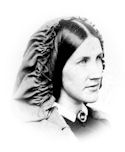January 12, Monday. Accounts from Vicksburg are unfavorable and vague. I fear there has been mismanagement, but we must wait official reports. It is said that Sherman has been superseded by McClernand. I know not how this is. At the commencement of this campaign, as early as last September, it was understood that McClernand was to have command of the army which was to go down the river and cooperate with our naval commander, Porter. The President had confidence in him, and designated the appointment, which was acceptable to Porter, who had a particular dislike of West-Pointers. For this I cared but little, because it was confessedly without knowledge of the officers individually and their merits, a close and a sweeping condemnation of all, — partly, I think, because he did not know them, and feared he should be compelled to play a subordinate part with them, while with a civilian general he would have superiority.
For three months, while Porter has been organising the Squadron, nothing has been heard of McClernand until since the attack on Vicksburg, and now it is merely to tell us he has abandoned the place and withdrawn his forces.
The rumor of the capture of the Harriet Lane with the little garrison at Galveston is confirmed. I am grieved and depressed, not so much for the loss of the Harriet Lane as from a conviction that there has been want of good management. It is about three months since we took Galveston, and yet a garrison of only three hundred men was there when the Rebel army approached the place. Some one is blamable for this neglect.
The court martial on Fitz John Porter closed last Saturday, and the rumor is that he was at once unanimously acquitted. Of the facts I know nothing. I have read none of the evidence. Shall be glad if he is blameless and it shall so appear. My impressions were that while he and some others were not disloyal, as charged, they did not support and sustain the general in command, Pope, in a great crisis as they should have done; that they performed their duty to the letter of the law, perhaps, but not with alacrity and zeal; that while they did not wish the country to suffer a reverse, it would not grieve them if Pope did. In all this I may be doing certain officers injustice. They were, however, the impressions made upon me at the time when disaster was impending and our soldiers were giving their blood and their lives to the country. I am no admirer of Pope, who has the reputation among those who know him of being untruthful and wholly unreliable, a braggart and blusterer. Wrong may be to some extent done him, but there is some cause for what is said of him. He was instrumental in bringing Halleck here, and Halleck gave him the army in return. Both came from the West, and, aided by Stanton and Chase, Pope was placed in command over generals who were his superiors in age, experience, and qualifications. This was as much, to say the least, to humiliate McClellan as to serve the country. Pope preceded Halleck here, but it was the same influence that initiated the two. It is not difficult to see who is the cause of their being here to supplant McClellan, whose tardy inaction here and on the Peninsula disheartened the nation. Fitz John Porter was one of the generals who had great faith in McClellan, who sympathized with him in good and evil fortune, but who was destitute of faith in Pope, as were nearly all his associates, who each, like their commander, felt wronged, almost insulted, by the exaltation of an officer from the Western Department, for whom they had not high regard, placed over them. The change of commanders could not inspire him with confidence and zeal, but if he permitted it to impair his efficiency he is inexcusable.











